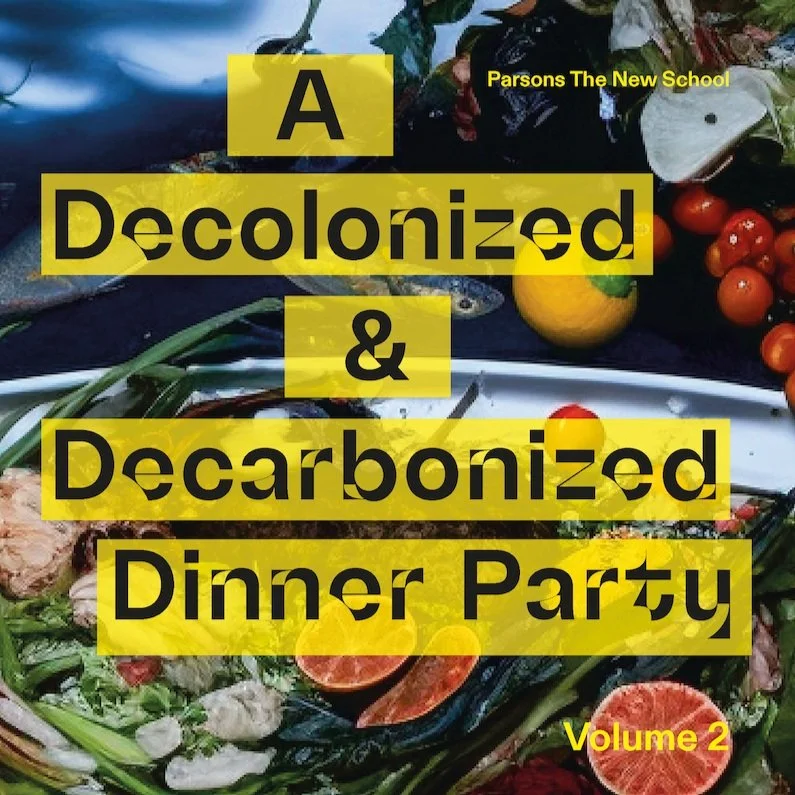Yvette Chaparro: "A Decolonized and Decarbonized Dinner Party" VOLUME 2.
Transart PHD candidate Yvette Chaparro recently published Volume 2 of "A Decolonized and Decarbonized Dinner Party" :
A collaboration between Parsons School of Constructed Environments and School of Fashion: MFA Interior Design director Michele Gorman, MFA Textiles Design director Preeti Gopinath, and MFA Industrial Design director Yvette Chaparro.
Words from Michele Gorman, Yvette Chaparro, and Preeti Gopinath:
As colleagues who lead three different graduate programs (Interiors, Textiles, and Industrial Design), in two different schools (Constructed Environments and Fashion) at Parsons School of Design, we were delighted to once again collaborate across disciplines on this second edition of a Decolonized & Decarbonized Dinner Party. The Decolonized & Decarbonized Dinner Party project’s first edition in 2022 was a significant milestone at Parsons, fostering a truly cross-disciplinary collaboration among faculty, students, and alumni from diverse backgrounds.
Encouraged by its success, we expanded our efforts in 2023, taking the project internationally to engage with the University of Cape Town and culminating in a dinner party performance on Governor’s Island in New York. This initiative was launched in celebration of Earth Day and revolved around critical themes of sustainability, decolonization, and social justice, with a focus on the role of design in addressing these pressing issues. Water, as a vital resource and a symbol of interconnectedness, became the central theme for the 2023 edition. The project shifted its focus from product outcomes to processes, rituals, and networks that promote repair, restoration, healing, and decolonization. Through workshops, symposia, and discussions, participants explored the dynamics of water access, power, inequality, and environmental degradation.
We began in South Africa, where Interior Design Program Director Michele Gorman visited the University of Cape Town (UCT) and started the conversation with faculty and students through a lecture and workshop. An interesting conversation about the value of a performative “land acknowledgment” was initiated amongst us, as it was perceived negatively and questioned in the South African context. We are mindful of our own differences in perception based on experience and continue to have animated conversations amongst ourselves on the subject of land acknowledgment. This was followed by an international online symposium centered on how water connects us all, across multiple scales, territories, and landscapes. In most cases, access and interaction with water is regulated by power dynamics that reproduce segregation, inequality, and environmental degradation. Our presenters described the presence of water in their current work through the format of a “recipe.”
As presented by Cocinas Alterinas, “recipes act as cartographies, narratives and repositories of memory.” The symposium served to reiterate our premise that as essential as water is to our human existence, our access and interaction with water is regulated by power dynamics that reproduce segregation, perpetuate inequality, and exacerbate environmental degradation. Our students from Parsons selected from the three design programs that each of us leads, then participated in a workshop with Maria Linares Trelles and reframed an existing project or current interest through a further reading of the topic, and reconstructed it through the format of a recipe.
Photogrammetry scan of the Decolonized & Decarbonized Dinner Party Exhibition. Michele Gorman, 2023.


